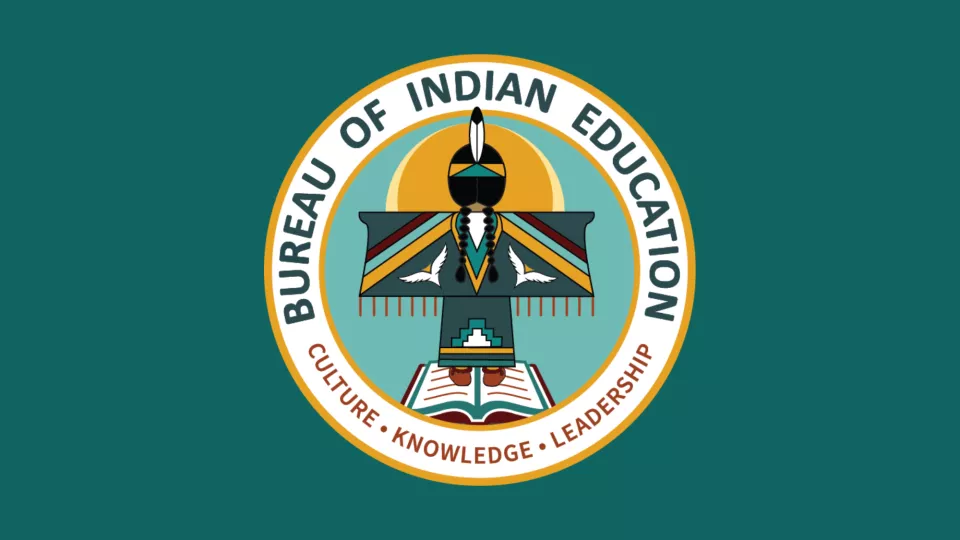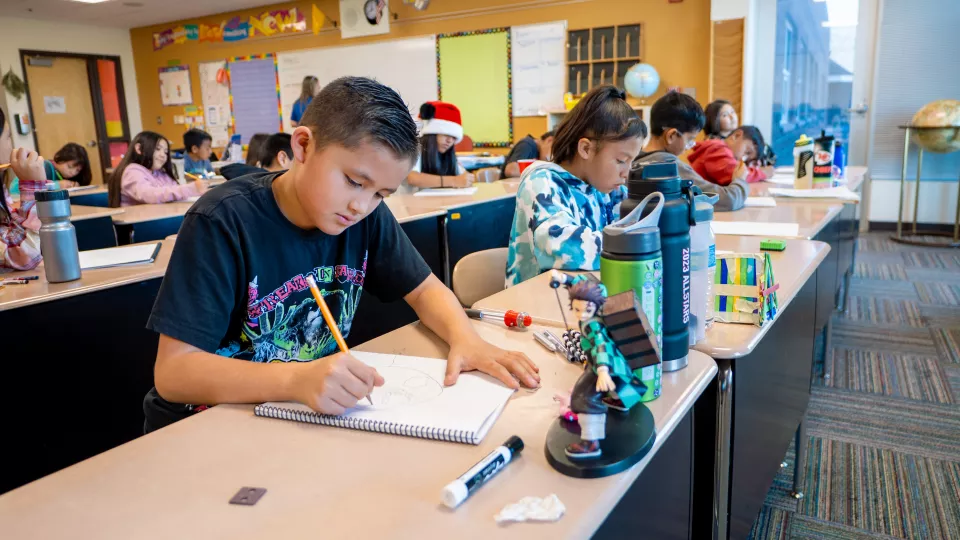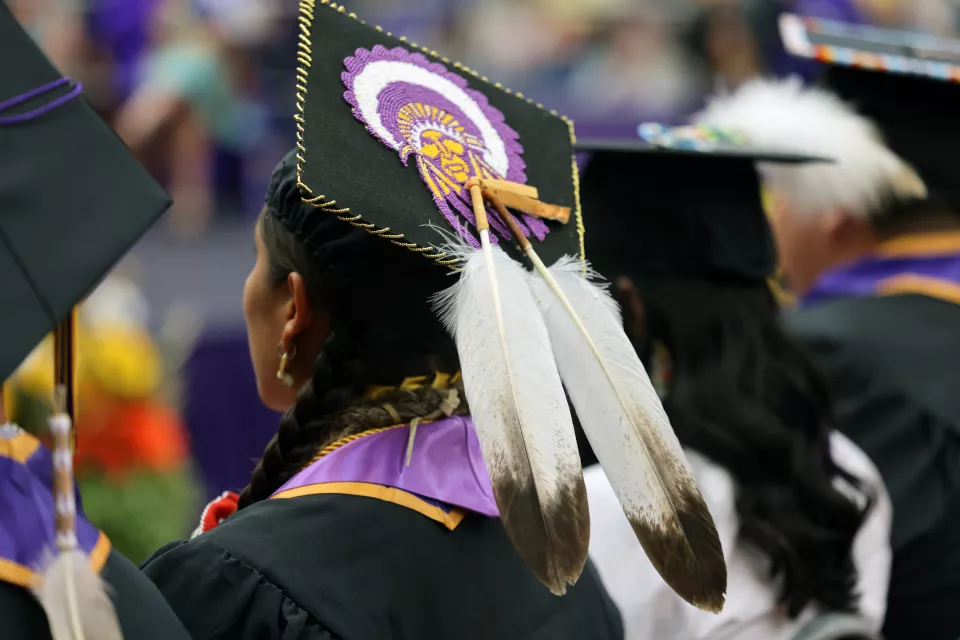
Young Learners Surpass Kindergarten Readiness Goals for the 2023-2024 School Year
Washington, D.C. — The Bureau of Indian Education’s Family and Child Education program achieved exceptional success in the 2023-2024 school year. The program’s young learners—including nearly 1,500 3-4-year-olds and 4-5-year-olds—exceeded prekindergarten and kindergarten readiness expectations as measured by the Teaching Strategies GOLD final assessment.
The Family and Child Education, or FACE, program is a comprehensive early childhood education initiative designed to support school readiness through responsive teaching and strong partnerships among families, schools and communities.
For the 2023-2024 school year, both age groups surpassed the 70 percent goal on the Teaching Strategies GOLD final assessment, showing growth and readiness for prekindergarten and kindergarten.
“This milestone highlights the effectiveness of BIE’s data-driven approach to early childhood education,” said FACE program manager Klarissa Thomas.
By providing a data-driven, family-centered approach, the program ensures that children enter prekindergarten and kindergarten classrooms with the skills needed for future academic success.
“Early childhood education is one of the most powerful investments we can make in our children’s future,” said Spike Bighorn, program manager for the Office of Sovereignty in Indian Education. “These results demonstrate that the BIE FACE program helps children succeed academically and builds stronger family and community ties to support lifelong learning.”
The program’s success goes beyond academic growth. Families engaged in the BIE FACE program continue to experience positive impacts:
- 89 percent of parents and caregivers said FACE prepared their child for school.
- 90 percent of parents and caregivers reported an active interest in learning in their child.
- 85 percent of parents and caregivers noted an increase in their child’s interest in reading.
- 89 percent of parents and caregivers shared that FACE inspired them to become more involved as advocates in their child’s education.
“We are proud of FACE students, their families, and the dedicated educators and staff who made this achievement possible,” Thomas said. “It demonstrates what can happen when communities come together to support young learners.”
These successes underscore the program’s commitment to high-quality early childhood education. By fostering strong learning fundamentals, the program makes a lasting difference in the lives of children and families, demonstrating how early education builds the framework for lifelong learning, one step at a time.
For more information about the BIE FACE program, visit the Early Childhood Education page of BIE.edu.
Contact
Office of Communications
Bureau of Indian Education Central Office
U.S. Department of the Interior
1849 C Street NW, MIB-3610
Washington, DC 20240
Telephone: 202-941-0789
Email: biecommunications@bie.edu





